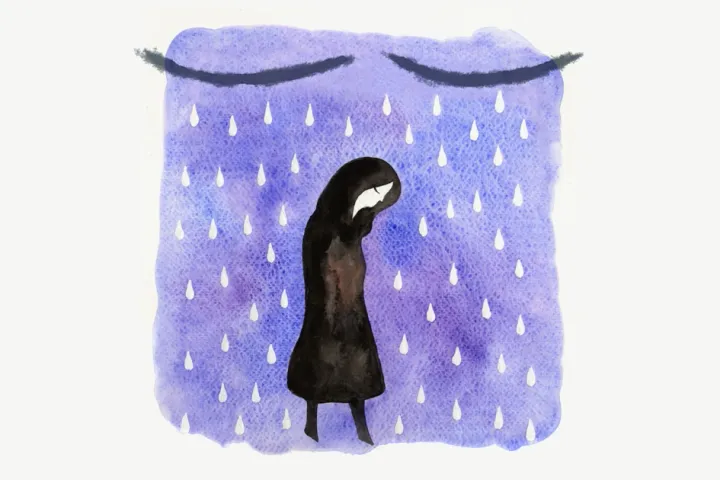Iryna Kovalenko cannot shake the events of February 24 from her mind. At 5 a.m. that day, her daughter came running in tears while bombs lit up the sky across Kyiv. From their 25th-floor apartment, they watched as the Russian invasion of Ukraine began.

Grabbing passports, papers, and what few personal items they could carry, Kovalenko and her daughter escaped to the Kyiv suburb of Bucha. But as the sounds of fighting intensified, they went farther into central Ukraine, where Russian troops weren’t present. Days later Bucha would become the site of some of the worst human rights violations since the start of the war—the murder of innocent civilians, widespread rape, and torture.
Now, Kovalenko stands in an Indiana church, looking into a box packed with toothbrushes, cotton balls, adult diapers, and shoes, taking inventory one last time. She picks up an In Touch Messenger and places it atop the other items. The name “Julianna,” the box’s intended recipient, is written across each flap. Kovalenko is overcome with emotion: she used to be a volunteer on the receiving end of these donations to help the elderly in Ukraine. Now she’s a war refugee, trying her best to support those doing the work back home.
Along with her friend and colleague Jenna Smith, Kovalenko prays with a group of Americans for the recipients of the boxes. Their pre-war work seemed like an uphill battle, as roughly a third of the country was 55 or older. But now, with a refugee population comprising mostly young people, the effort seems Sisyphean. But in this case, the women know the Lord is on their side.
Looking back, Kovalenko is angry with herself for not being more prepared to face a Russian invasion. Regret is just one of many emotions she’s working through now with counseling, as she’s coming to understand that what happened to her and millions of others caused intense trauma. She wonders if leaving Ukraine was the right decision. Yet now from the U.S., Kovalenko is successfully coordinating efforts to get supplies to the elderly in Ukraine, who’ve never had a social safety net. The government often was unable to provide for their needs—a problem that has intensified in the ongoing war. Kovalenko and Smith connect daily with volunteers in Ukraine, checking in to learn what recipients’ tangible needs are and how best to pray. The In Touch Messenger, already a vital part of the ministry, has become even more invaluable as a means of carrying the gospel to those in dire need of hope. There are reports of elderly Ukrainians who survived the Soviet Era and now, finally, have found peace in Jesus Christ.
For Kovalenko, Matthew 6:34 has taken on a deeper meaning: Jesus said, “Do not worry about tomorrow; for tomorrow will worry about itself.” Though physically safe, Kovalenko and her daughter are now strangers in a strange land. She’s unsure when, if ever, she’ll be able to return home. All she can do is face each day as it comes, sending support and praying for an end to war.





